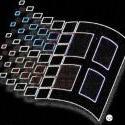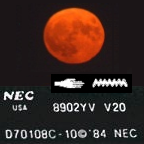Leaderboard
Popular Content
Showing content with the highest reputation on 08/12/2020 in Posts
-
I have a pertinent question... Why create a thread, when this topic is already being discussed: https://msfn.org/board/topic/181739-windows-update-error-code-80072efd/ https://msfn.org/board/topic/178377-on-decommissioning-of-update-servers-for-2000-xp-and-vista-as-of-july-2019/ Furthermore, you're linking to the Server 2008 update repository that I created without any kind of credit. Honestly, this thread seems pointless...2 points
-
... so without SHA-2 code-signing support (AFAIAA, this can't be implemented to OSes prior to Vista SP2 and in the latter, packages targeting originally WS2008SP2 are needed ), that method will become a moot one... I foresee that the next release will only be SHA-2 signed... ... And, as expected, that has just happened! The latest WSUSscn2.cab file (links are still the same as in my previous post) is ONLY SHA-2 signed and probably just useless under XP SP3: M$ is putting an end to everything pre-Win7, it seems...2 points
-
MS forced hardware vendors to supply x86 and x64 drivers for WHQL certification starting with Vista. But there were devices such as printers that were released only a couple of years before Vista that were challenged in the x64 driver department. And when you have 2 or 3 GB of RAM, the advantages of x64 are not as profound as they would be with loads of RAM (and even with 12 GB of RAM and a PAE-capable OS, you can still get by on x86). As an ex-Core Duo user, that would be part and parcel of a decent configuration for Vista yet it is a 32 bit CPU. And then there's Steam and Office 2013+ installers. They are quite popular yet they don't exist in a 64bit form. But indeed, I've faced many challenges on x86 that haven't surfaced in x64. Indeed crashes that occur when calling NtQuerySystemInformation and NtQueryInformationProcess are a real PITA. I've just noticed that those two functions have received minor upgrades on 7 (but not on x64, which is why it works there). But ntdll is off limits due to it having a mandatory signature and signtool refuses to sign dlls (probably why no one really does deep-down modifications to 8.x and 10 since the signing requirements are very stringent, even compared to Vista/7). So I decided to implement the Windows 7 versions as subroutines in kernel32.dll, as it is possible to successfully implement some ntdll functions in kernel32. But that just trips DEP, so that's a non-starter. I'll have to file this one away in the "MS paranoia impedes power users" folder. In fact, the next function I was going to implement, K32EnumProcesses also calls the functionally-deficient ntdll functions mentioned above, so it's dead in the water. Yet again, our hopes rest with the BWC versions of those functions. Thanks a lot, M$.2 points
-
I will believe it. If you search for drivers on the catalog, it is super complicated to find the correct one. Especially since the catalog likes to sometimes put internal or code names for releases in the OS version column. Just yesterday I ran into a problem finding a Broadcom WLAN driver. I downloaded the most recent one for Windows 10 current version, went to install it and it wouldn't take it. Then I look into the INF and it has XP to 8.1 specific install sections, not a Win 10 section or even one of those generic amd64 sections. So if the catalog has Windows XP drivers marked as Windows 10 drivers, you can be sure that Windows Update probably was doing the same thing... which might explain some of the issues people have with drivers from WU in the first place.1 point
-
1 point
-
Updates for MS Office 2010 still install on Windows XP (KB4484454 and KB4092435 were even offered by Microsoft Update) - except that after installing KB4484454, you traditionally have to roll back to the old version of mso.dll. Links to offline installers for these patches are provided in the applicable Microsoft bulletins: https://support.microsoft.com/en-us/help/4484494/security-update-for-word-2010-august-11-2020 https://support.microsoft.com/en-us/help/4484497/security-update-for-outlook-2010-august-11-2020 https://support.microsoft.com/en-us/help/4484375/security-update-for-office-2010-august-11-2020 https://support.microsoft.com/en-us/help/4484461/security-update-for-excel-2010-august-11-2020 https://support.microsoft.com/en-us/help/4484379/security-update-for-office-2010-august-11-2020 https://support.microsoft.com/en-us/help/4484385/security-update-for-access-2010-august-11-2020 https://support.microsoft.com/en-us/help/4484454/august-4-2020-update-for-office-2010-kb4484454 https://support.microsoft.com/en-us/help/4092435/august-4-2020-update-for-powerpoint-2010-kb40924351 point
-
1 point
-
OK, finally, something! I unblocked the file AND ran as admin, nothing. I copied to the desktop, then right-clicked to run as admin and FINALLY I got a UAC prompt! And now there's activity in Task Manager, crossing my fingers that something's going on...1 point
-
1 point
-
... And just to be on the safe side, your previous screenshot from Aug 8th reported definition version 1.321.917.0; can you confirm you are now on a "higher" version after executing downloaded file mpam-fe.exe ? That would dispel any doubt that the manual update procedure for MSE is a viable way to keep using it under Vista SP2! I am genuinely sorry you can't get this to work, Dylan, but I'm also out of ideas what you should try next... Perhaps a visit to Windows Event Viewer could shed some light on this mystery... Just one final, probably just silly, question: Where did you get your copy of MSEInstall.exe v4.4.304.0 ? If it was within the context of some WinXP related thread, it's possible they linked the 32-bit variant, which would also install under Vista x64; verify you have MSE 64-bit installed (the 64-bit mpam-fe.exe is not able to update MSE 32-bit, and vice versa...). Ultimately, only you know how you've configured your Vista SP2 system (I read several times that GPOs were used - not available here in my Home Premium Edition ), so it's possible something went amiss there... Best regards1 point
-
Yes, it works. For me, it's easier to get it working on a fully patched (POSReady) XP than a clean install. @Dave-H, one last try: - stop the Automatic updates service - delete C:\WINDOWS\SoftwareDistribution\ScanFile and rename C:\WINDOWS\SoftwareDistribution\DataStore and C:\WINDOWS\SoftwareDistribution\Download - restart the Automatic updates service - run the MS script1 point
-
You're trying to use the later version, which only runs on Windows 10 apparently! See earlier posts.1 point
-
@Dave-H Couldn't get WUMT working. However, the script on this article worked on a clean install of XP SP3: https://docs.microsoft.com/en-us/windows/win32/wua_sdk/using-wua-to-scan-for-updates-offline Save the text as a .vbs file (ie: wuscan.vbs), copy wsusscn2.cab to c:\ or change its path in the script, then run in a Command Prompt: cscript wuscan.vbs If it doesn't work, try to: - restart Windows - stop Automatic Updates service, delete C:\WINDOWS\SoftwareDistribution\DataStore and re-enable the service. If it says Searching for updates... then just wait, it's doing its job.1 point
-
A while ago I did some google search about WUMT. The developer of the tool is said to be elusive and avoids publicity. The Russian forum mentioned above seems to be the original source of WUMT and the thread on My Digital Life followed. There are two verions of WUMT: 20.12.2016 - supports XP -> Win10 07.01.2020 - supports Win10 only Major Geeks replaced v20.12.2016 with v07.01.2020 early this year and does not have the older version available for download any more. Windows Update Offline Scan File wsusscn2.cab is updated from time to time and includes lists of all available updates for different versions of Windows. I could not figure out how often it is updated and which OSes are actually supported. I used it with XP, POSReady 2009 and Windows Embedded Standard 7. Here are all relevant links and checksums: v20.12.2016 wumt.zip MD5: 200B3B2198F32AFC6FBF2D5B6110C5CC v07.01.2020 wumt.zip MD5: 4B4BB34ADC4376E6F6DA6961DC59FAB3 WUMT - original source: http://gallery.ru-board.com/topic.cgi?forum=5&bm=1&topic=48142#2 WUMT - primary thread in English: https://forums.mydigitallife.net/threads/windows-update-minitool.64939/ Official web page of wsusscn2.cab: https://support.microsoft.com/en-us/help/926464/a-new-version-of-the-windows-update-offline-scan-file-wsusscn2-cab-is1 point
-
An updated 9xweb script is available for download (forum login required), v20200805 Beta. Relevant information and links, including helper software, can be found on post #1 of this thread. The changelog has been updated on post #2. Search, select, preview, fetch and auto-play videos from a command.com window. Playback fullscreen with favourite media player. No web browser required.1 point
-
LTSC is far less I/O intensive than regular Home/Pro editions of Windows 10 due to the lack of UWP apps installing and updating themselves, as well as a reduction in telemetry. Thus, LTSC is far more usable than the latter two OOB, especially on 5400/7200 rpm HDDs. But I think you can get the same experience from Windows Server as that also lacks the UWP junk, has a far smaller storage/RAM footprint by default, and doesn't require enterprise licensing. My father had grown so unsatisfied with Windows 10 that it was finally replaced by Ubuntu this week, mostly due to the I/O problems. It should no longer be licenced for PCs with only HDDs, as it's basically equivalent to Vista with 512 MB of RAM. And that Vista Ready nonsense went nowhere quickly...1 point







